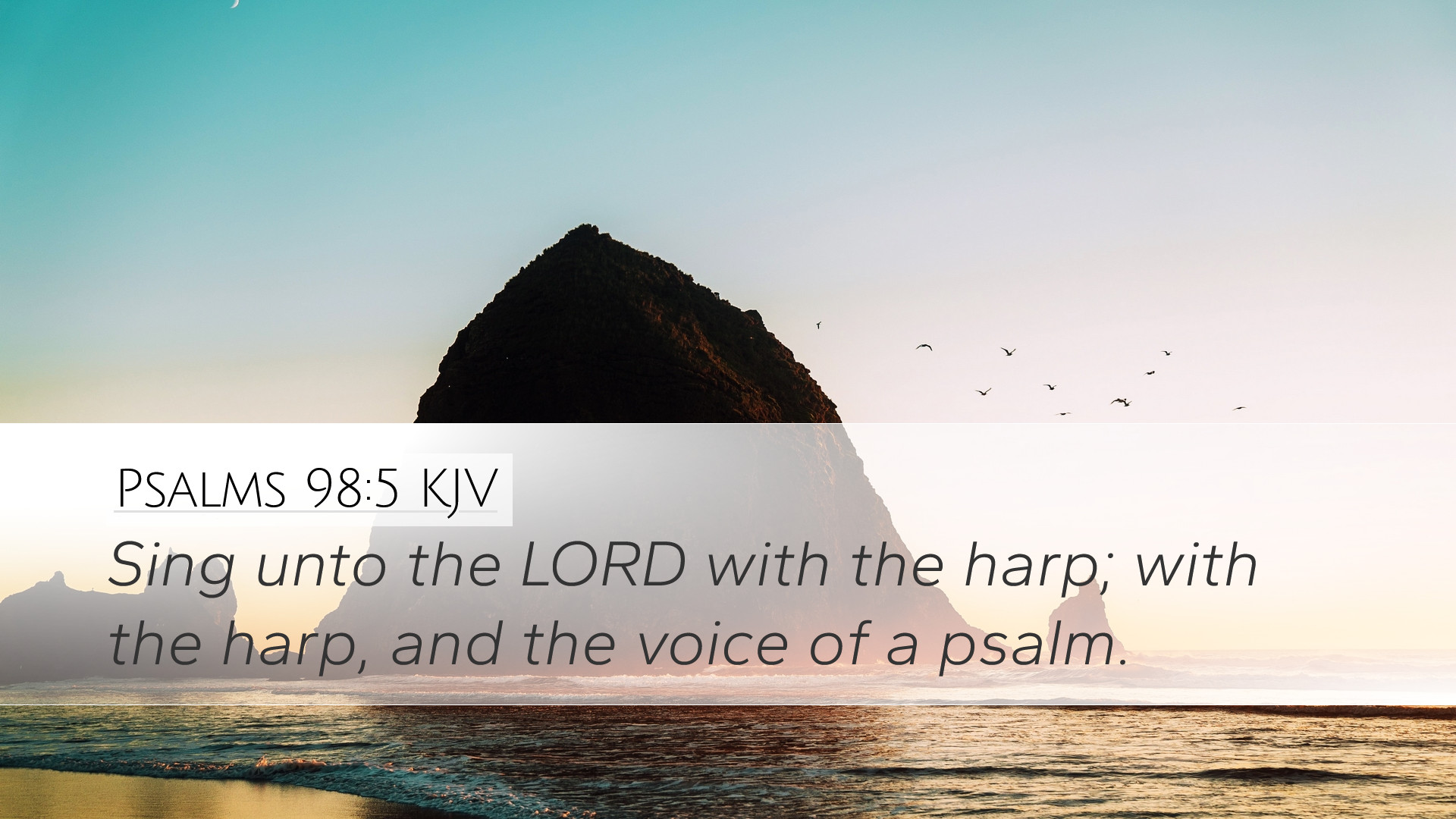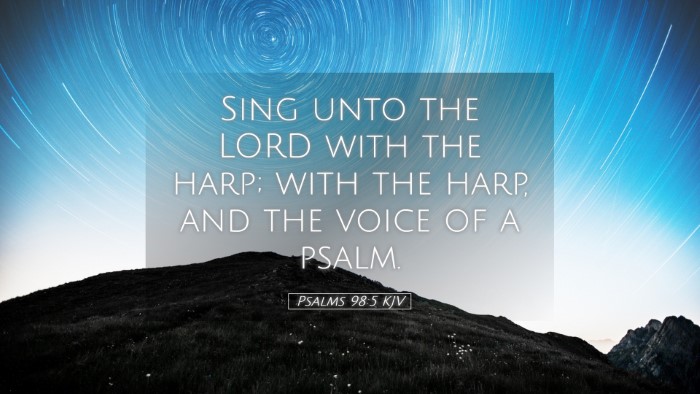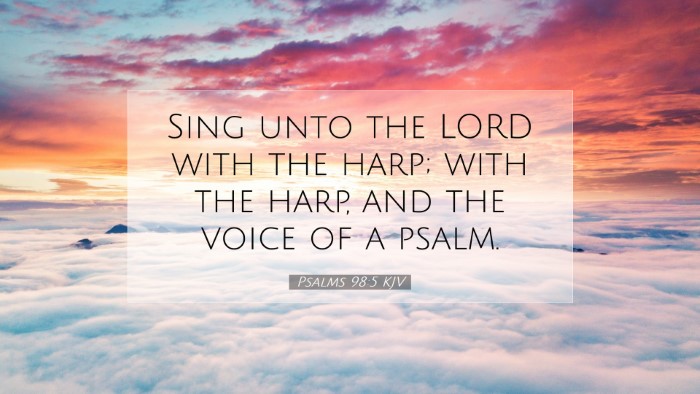Commentary on Psalms 98:5
Bible Verse: "Sing unto the LORD with the harp; with the harp, and the voice of a psalm." (Psalms 98:5)
Introduction
Psalms 98 is a profound hymn of praise that calls for rejoicing in God's victories and His righteousness. Specifically, verse 5 presents an instruction to worship God with the harp and the voice of a psalm. This commentary synthesizes insights from notable public domain commentaries to explore the theological, musical, and practical dimensions of this verse.
The Call to Worship
1. The Imperative to Sing:
Matthew Henry emphasizes the importance of singing in worship, noting that it reflects the joyful response of the believer to God's goodness and mercy. Singing is not merely a choice but a command that encourages communal expression of faith. The psalmist calls upon the faithful to lift their voices in praise, indicating that worship should be a vibrant, communal activity.
2. The Harp as an Instrument of Praise:
Albert Barnes expands on the use of musical instruments in worship, and in particular, the harp, which is a symbol of beauty and harmony. The harp is traditionally associated with God's praise and is used to set the tone for heartfelt worship. The presence of musical instruments in worship highlights the importance of creativity and expression in glorifying God. Adam Clarke reinforces this by indicating that instruments assist in elevating the soul towards the divine, allowing for a fuller expression of joy and reverence.
The Content of Worship
1. The Voice of a Psalm:
In this verse, the phrase "the voice of a psalm" speaks to the lyrical quality of worship. It indicates that the act of singing should be rooted in scriptural truth and reflection of one's experience of God. Matthew Henry suggests that the psalm carries with it not only the message of God's actions but also the emotional response of the worshiper. The blending of heart and voice in worship highlights the holistic nature of being created in God's image where both spirit and emotion contribute to glorifying God.
2. The Community Aspect:
Barnes notes that the plural form—"harp" and "voice"—implies a collective worship experience. The Psalms were often sung in congregational settings, emphasizing the importance of community in the life of faith. This communal aspect reminds pastors and church leaders of their duty to foster environments where corporate worship is encouraged and facilitated.
The Nature of God’s Works
1. A Response to God’s Salvation:
Verse 5 can be seen as a response to God's redemptive acts. Clarke expounds on the notion that songs of worship are often rooted in personal and communal experiences of salvation and deliverance. The act of singing praises with instruments is a way to concretely acknowledge and celebrate God's interventions in our lives.
2. Theological Implications:
This verse connects the act of praising God to an understanding of who He is—His attributes of mercy, justice, and loving-kindness. Worship, therefore, is not only an expression of feelings but also a declaration of faith and knowledge about God. The pastor or theologian might consider how this informs our worship practices today and the theology behind them.
Conclusion
Psalms 98:5 serves as a powerful reminder of the call to express our worship through song and music. The insights gathered from public domain commentaries reveal that this verse encourages congregational worship with heartfelt gratitude in response to God’s mighty deeds. It fuels the imagination and creativity of the church, reminding spiritual leaders and congregants alike that praise should be vibrant and comprehensive, involving instruments, voices, and the truth of Scripture.
Reflection Points:
- How can our churches enhance the musical elements in worship to better reflect the vibrancy encouraged in Psalms 98:5?
- In what ways can we invite congregational participation that fosters a deeper understanding of communal worship?
- What specific acts of God should our worship consistently reflect upon as we gather to sing?


